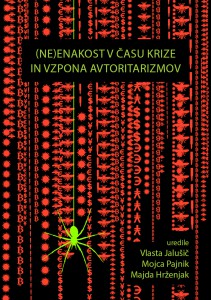
Book / (In)Equality and human rights in times of global governance
The book explores the deepening of inequality, the erosion of human rights, and the rise of undemocratic regimes in the modern world, which is characterized by multiple crises: climate, migration, health, economic, media, military, and the crisis of democratic institutions. Through the lens of crises and (in)equality, it examines some of the most urgent social problems and processes: crisis politics as a contemporary form of governance, the rise of populism, the role and functioning of the media amidst the increase of authoritarianism, the operation of the rule of law in cases such as regulations to control epidemics, the deregulation of labor protections and the return of migrants, structural issues in institutional care for the elderly, and the outsourcing of care work. Drawing on research data and analysis, it consistently highlights human rights violations, marginalization, and practices of institutional violence, while also opening perspectives for new beginnings. The book reflects the work of researchers at the Peace Institute, an interdisciplinary team studying political science, communication, anthropology, political philosophy, sociology, and law. The authors provide a broad and diverse view of the complex realities we face today.
Tabel of Content (in Slovenian language):
Vlasta Jalušič
Uvod: kriza kot izziv in priložnost?
Vlasta Jalušič
No future, no future for you? Premislek pojma in sodobne paradigme krize
Neža Kogovšek Šalamon
Kriza prava in instrumentalizacija pravnih predpisov za družbeni nadzor v času epidemije
Mojca Pajnik, Majda Hrženjak
Vloga medijev v krizi: covid-19, avtoritarne tendence vladanja in nazadovanje demokracije
Maja Breznik
Kriza delovnega prava: kontroverza med pravicami in statusi
Veronika Bajt
Prisilna vračanja kot zločin iz sovraštva
Majda Hrženjak
Ujeti v instituciji: kriza upravljanja pandemije v domski oskrbi starih ljudi z vidika skrbstvenih mobilnosti
Živa Humer, Mojca Frelih
Skrbstveno delo, enakost spolov in vloga moških v času pandemije
Lana Zdravković
Kriza kot konec: eshatološke teoretizacije
